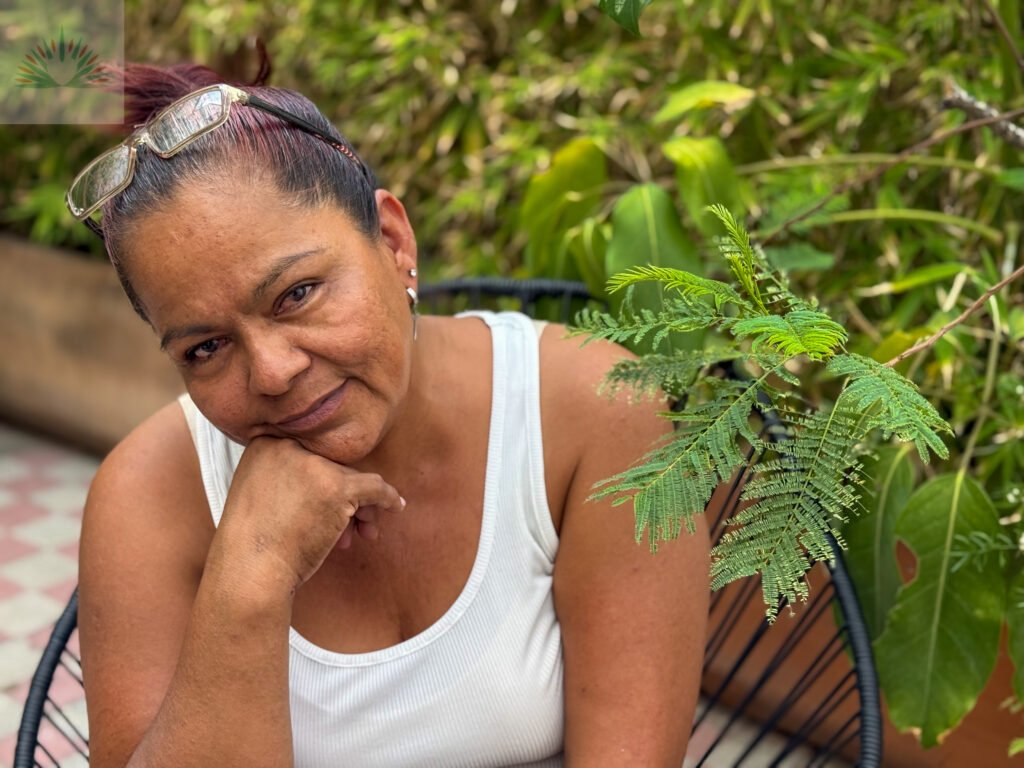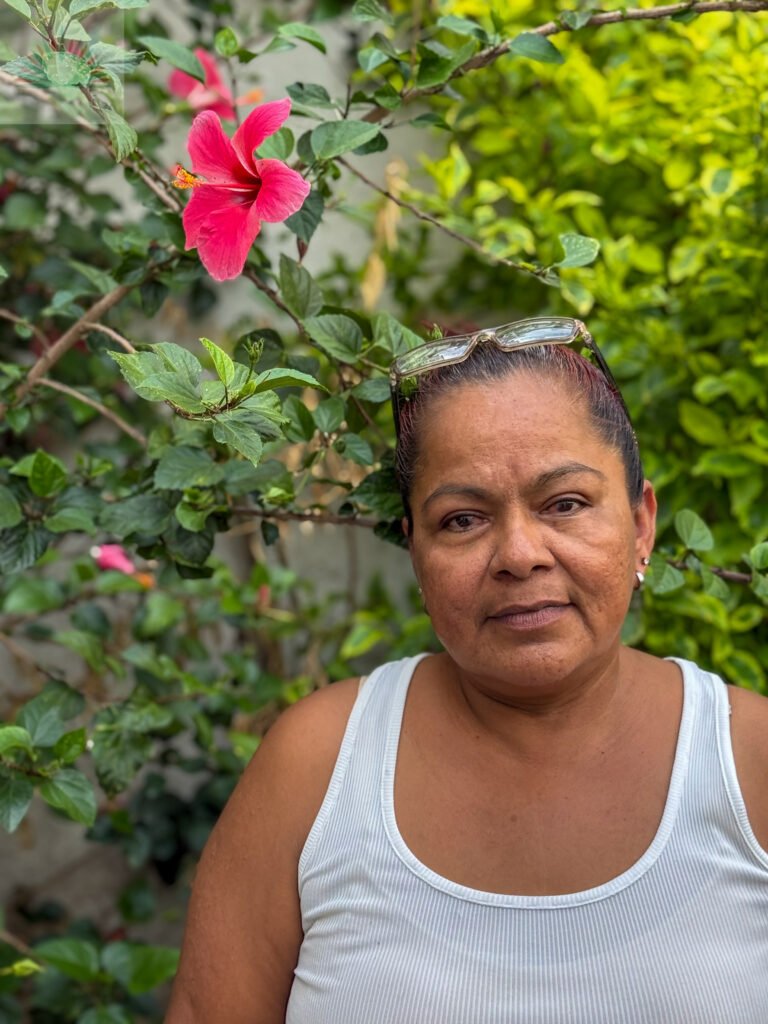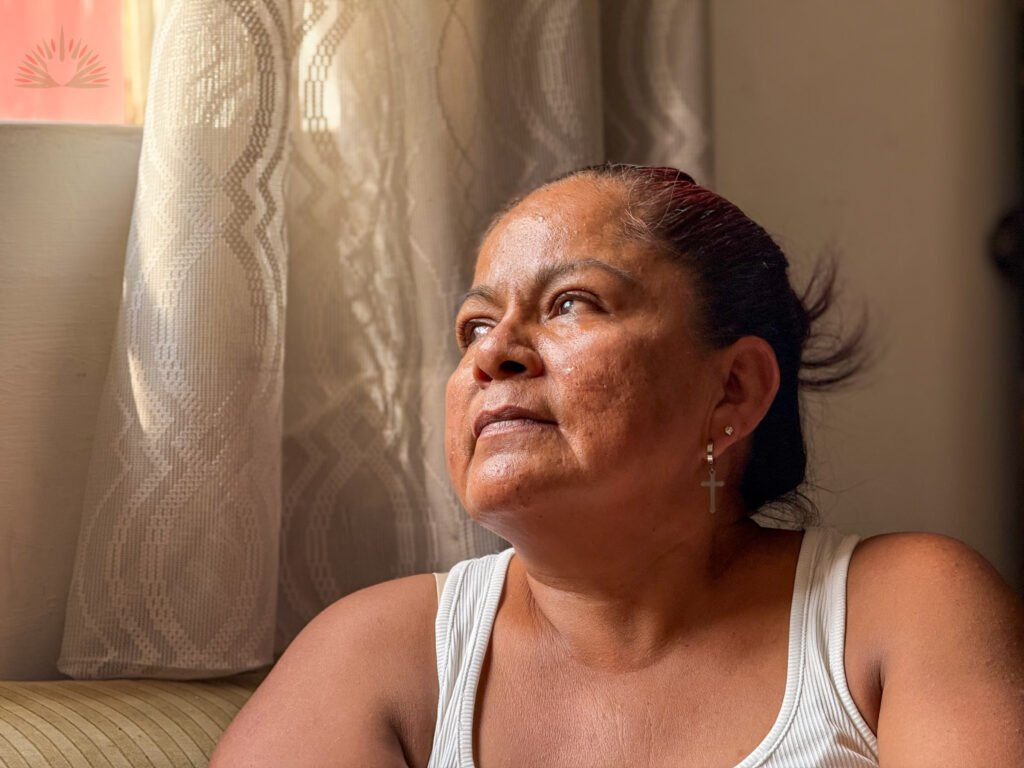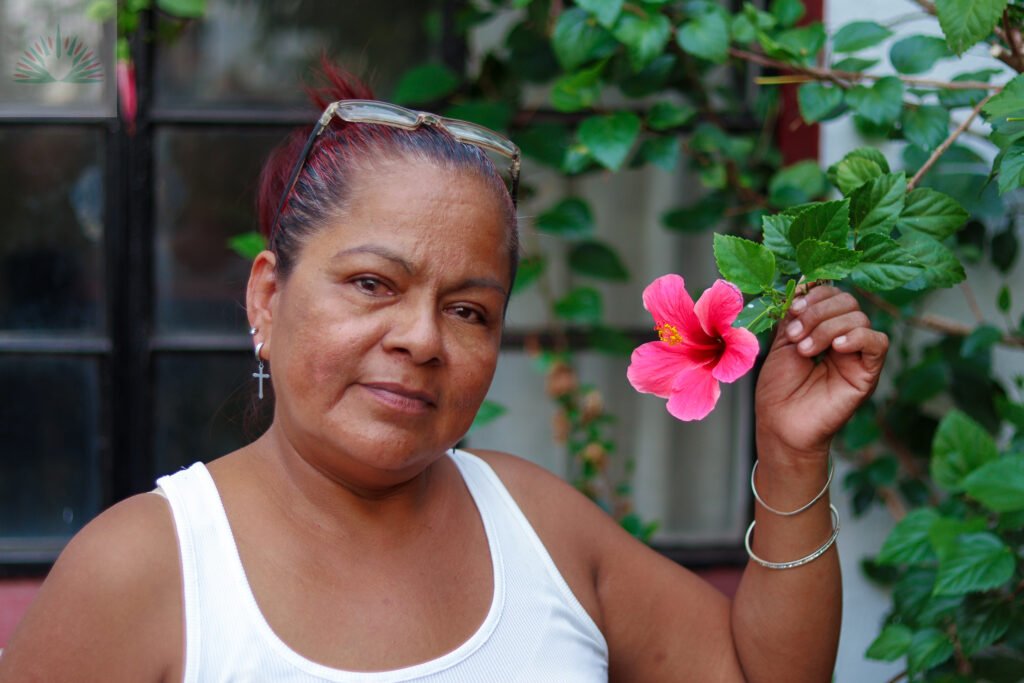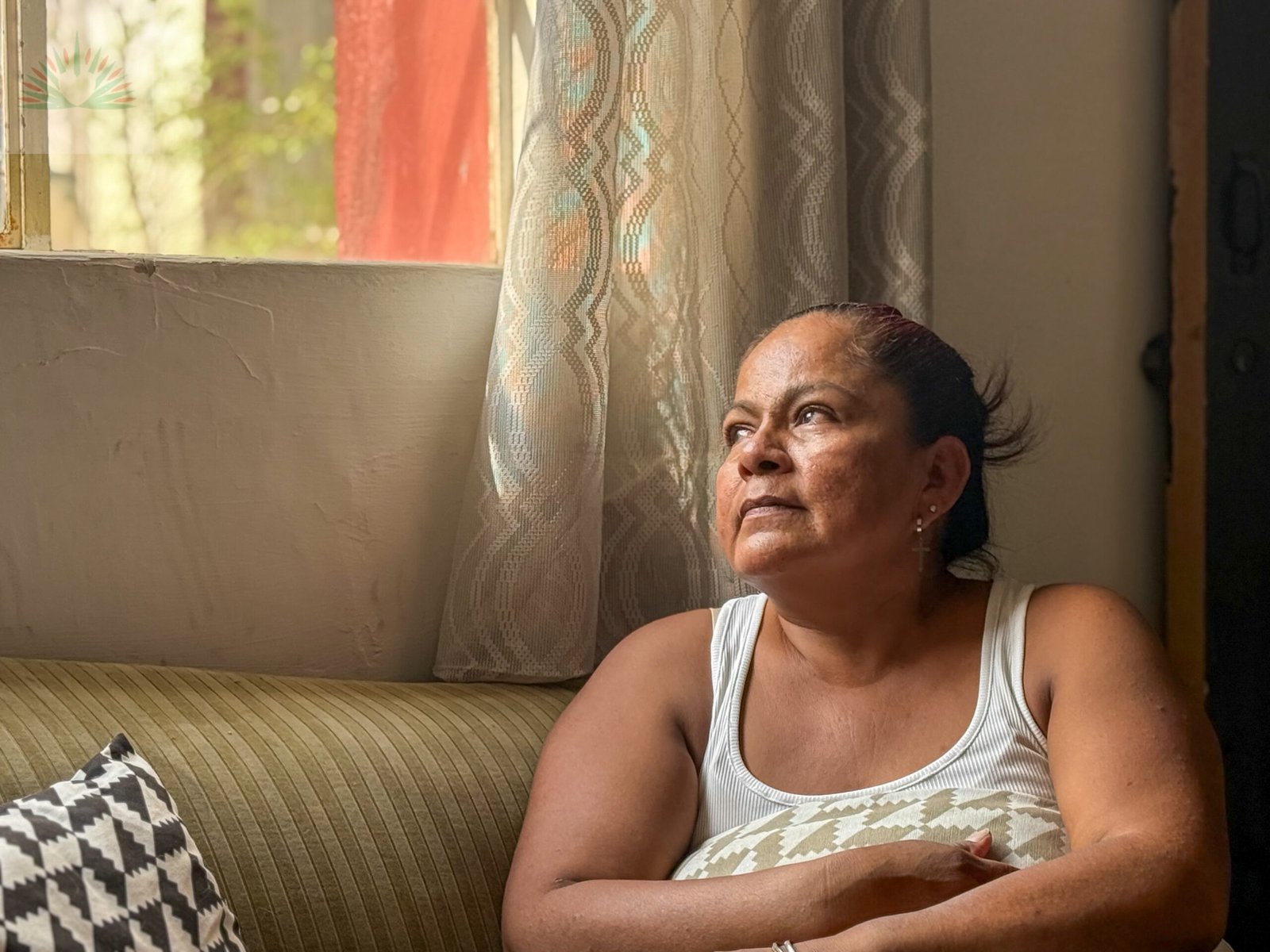
An extraordinary woman whose story embodies healing through connection, loss, love, and belonging. From her early struggles with abandonment to building a chosen family in Guadalajara, Vicky shares a powerful narrative of resilience rooted in Mexican culture, tradition, and community.
What happens when your earliest memories are shaped by abandonment, struggle and loss, yet blossom through love and connection? When the absence of a mother’s touch becomes the driving force behind the strength to build something new?
Today, we meet Vicky. Her story is a testament to resilience through loss, love, and reconnection. One of overcoming abandonment, of discovering family not through blood, but through love. Of rebuilding life in Guadalajara—one meal, one moment, one heartfelt connection at a time.
As you listen, reflect on your own journey. We all face loss and find love in unexpected places. “Who is one person whose love or guidance changed your path—and how did they help you find your strength?”
Imagine feeling gratitude for the simplest things, like having a job, life, and health. This gratitude is what makes Vicky’s day “excelente.”
“I have a job. I have this life. Health, more than anything. So… super good, super happy because of that.”
Vicky works at Mercado Prado, a local spot cooking delicious Mexican staples—lonches, chilaquiles, and quesadillas. Her cooking is more than food—it’s connection. It’s her anchor—learned by observation in the houses where she lived. Through cooking, Vicky maintains her cultural heritage.
“My job means a lot. Well, to me personally, it means a lot because it’s my financial support. For me, working is… I feel happy, I feel content to be able to go to work and to have a job. Well, I’m grateful that I have a job, more than anything.
All of that I learned by watching in the houses where I lived. All of that, like… the Oaxacan tamales, the quesadillas, chiles rellenos, those stuffed jalapeños, really spicy ones. Everything was learned just by watching, watching people.”
But life wasn’t always filled with warmth and gratitude. Growing up was difficult.
“I grew up alone. Since I was little, from the age of 8. The woman who brought me into the world gave me away to some people. But those people were bad to me, they hit me.
“He said to me: ‘Your mom doesn’t love you, that’s why she gave you away.’
“And I’d say: ‘Well, no, I don’t think so. I don’t need her. I have to move forward. I have to make it. If I can’t do it here, then I have to find where I’m going to move forward.”
“And that’s why I ran away from where the woman who brought me into the world left me. Because I can’t say she’s my mom. She’s the woman who brought me into the world.
“I left, I went to other houses, and I kept moving, moving from house to house until I ended up with a woman who helped me. And thanks to her, I came here to Guadalajara.”
“Here in Guadalajara, I’ve been working since the age of 16. I met really good families, who were very supportive of me. They’ve already gone to rest. They’re with God now. I’m no longer with them, but I’m still here with their grandson. I’m here with their grandson, Antonio de la Peña. And, I’m still here, giving it my all. Because I have… I have 6 children and I still have a little one who depends on me. And I would never do to her what was done to me.”
Moving to Guadalajara marked a turning point. Vicky met someone who changed her life completely, a woman who initially doubted her abilities. There, she found not just work, but family and purpose.
“It really marked me… being left. It marked me for life. I met the woman I worked with for many years, about 30 years. She taught me what no one else had taught me along the path I had already traveled. She taught me how to do housework, she taught me how to cook. And I’m very grateful to that woman, who’s also gone now. I don’t know how to express my thanks, may God hold her in His kingdom, because she was someone I loved very much. I loved her a lot because she and her husband, may they both rest in peace, they are the ones who I feel changed my life.”
“I heard her when she went to look for a woman who helped her around the house. And that woman had gone on vacation without even telling her. She just left, and she went to look for her, to the place where she knew she lived. And I heard her. And since I had her phone number, because I used to talk to that girl, I called the lady,
‘Ma’am, I heard you came looking for so-and-so, for Katy. And… would you like me to help you while she is away?’
‘How old are you?’
‘I’m about to turn 18.’
[Vicky imitating the lady]
‘Oh no. You can’t handle my work. You can’t.’
[Vicky resumes]
‘Try me. And if you see that what I do doesn’t work for you, then okay. But if you want, let’s give it a try.’
‘Alright. Come. Where do you live?’
‘I live on Avenida Inglaterra, number such-and-such.’
‘And where are you going to get off?’
‘Well… I only know the Fiesta Americana Hotel.’
‘Ah, then get off there. Walk toward where the road is, and I’ll be outside sweeping.’
So, I arrived and I saw her sweeping. She let me in. I started doing housework. She showed me how I had to do all the chores in her house.
She showed me while she was cooking, ‘Come here, so you can see how I’m going to cook, so one day you can help me make the meals.’
And that’s how it was. I know how to do a lot of things because she taught me.”
Therefore, Vicky found not only a mentor but a mother figure who taught her invaluable life skills like cooking traditional Mexican dishes and also…
“I have to move forward, and thanks… to my foster mom who helped me. And to the woman… where I came to work here in Guadalajara. They taught me to be… a better person.”
“My foster mom. She was the person who helped me, who encouraged me to come to Guadalajara. At the age of… I was 15 when I came to Guadalajara. 15, 16 years old, around there. I came to Guadalajara. Here I started to work, to work. Sometimes, when I could, I would send her a few coins. And yes, during vacation time I would go visit her. I used to call her—not often, because back then, well, it wasn’t possible to have a phone at home. I’d call her through the neighbor. Ask, “How is she?” Then I’d let her know if I was going to go or not during vacation.
I spoke with her at the beginning of the year.
She said, “Oh, mija, I’m in the hospital,” and she said, “I just want to die now.”
I said, “No, mamá. Wait for me.” I said, “Wait for me. I’m going to go there in April. I want to go see you.”
Yes, yes I went to see her on May 6th. I went to see her, this year.
I said, “Mamá.”
“Who are you?”
I said, “Mamá, it’s me, Vicky.”
She said, “Mija, I’m so glad you came,” she told me, “I can’t see you anymore, mija.”
I said, “Mamá, I brought my little girl.”
She asked, “Where is she?”
She touched her—my little girl.
She said, “You’ve gotten so big!” she told my daughter.
Then she said, “I can’t see you anymore, mija, but I know you’re very beautiful,” she told my daughter.
She complained a lot.
I used to go stay there with her for a few days and then I’d come back to keep working.
On May 11th at 6:30 in the morning, they told me she had passed. I wasn’t able to be with her anymore.
I felt like she always waited for me with so much love when I came, with so much affection. She never knew what to give me when I arrived. She’d already have a watermelon, a pineapple ready. That’s what I ate the most: watermelon and pineapple. And she just didn’t know what to give me.
And now that I went, now that I had gone, she told me:
“Mija.”
I said, “Yes?”
“Do you want to eat?”
She said, “There’s food in the fridge. There are some beans, this, that.”
“Yes, mamá,” I told her, “thank you.”
And that was it. I wasn’t able to be with her anymore. But I got to see her, and she gave me her blessing.
She’s the other person.”
Yet, the absence of parental love left Vicky conflicted about her ability to express affection towards her own children.
“I wasn’t affectionate with my children, the older ones, because I feel like I didn’t have that love, and I didn’t show my children the kind of love that should be shown. Now, with time, with life passing by, I’ve learned to show a little of my… of my love, of my affection. Sometimes, I think I wasn’t affectionate enough to show that love to my children.”
“And I feel that now, with my little one who’s 11 years old, I feel like I’m giving her… I’m showing her that affection. Because I’ve told her, “I want to be a better mom with you. I want to be your friend, your mom, and if you want, your sister. I want you to tell me your things. Your confidant. I didn’t do it with your sisters because I didn’t know how. But with you, I do want to.”
But Life in Mexico today isn’t without struggle. Vicky openly discusses concerns about vandalism, theft, and corruption, expressing the desire for change.
“We can’t walk safely in the streets because… I mean, we don’t even trust the person walking right next to us anymore, because you don’t know if they’re going to snatch your wallet… or grab your phone. More than anything, you’re out on the street with fear that someone might rob you, pull you, yank you around. And another thing is the kidnappings of all the people out there, because, the kids are just walking down the street and they’re taken, and… where are they? Who knows?
“I think they should put in a little more security. And that the… that the police be less… less corrupt. That they be more… more loyal to the people. That they really know how to protect.
“Mexico… it’s full of hardworking people. Honest people who know how to help. I’d say in every way. Like for example, if there’s someone asking for money on the street, I’ve seen that there are people who do help them, and others who just brush them aside.”
Tequila holds a special place in Mexican tradition, connecting communities through celebration.
“The flavor it has… it’s special. It’s really delicious. I don’t even have words to describe it. It’s so tasty.
“My girl, right? She’s 29 years old but she’s still my girl, of course. And, well, when we hang out at home, it’s either with beer or with tequila…
In lighter moments, tequila emerges as a small but joyful connection to Mexican culture—especially José Cuervo, her favorite brand.
“Well, up until now… the one I’ve liked the most is José Cuervo…
“It has such a… delicious flavor. [laughs]
“You’re drinking it and—whoa!—you just want to finish the whole glass in one gulp. [laughs] So tasty.
“It just… hits me really hard. [laughs] Really fast. Knocks me out. But with Squirt, I can drink… more little cubitas (more slowly).
“Well, I think that tequila has a lot to say about Mexico. I’ve heard many people say: “I have to go to Guadalajara so I can take the train to Tequila. And when they arrive,” they say, “let’s dance with the mariachis.”
Above all, Vicky stresses the importance of empathy and preserving core Mexican values.
“I think we need to have more empathy—especially for people who have less. There are so many of us who, honestly, just don’t show much empathy at all. I wish I could help everyone I see out on the street, but I can’t. I give a little to one person, a little to another… but eventually, I just run out. What I really hope is that we can protect and preserve the things that matter—for everyone. And most of all, that we stop seeing ourselves as better than someone just because they’re asking for help. We’re not superior. That’s the truth.
If Vicky could send a single message about Mexico, it would be an end to poverty and corruption, creating a safer, kinder world for all Mexicans.
“Mexico has so many really, really beautiful things that… sometimes, as people, as human beings, we don’t know how to take care of them. For me, Mexico is the most beautiful thing that… even though I don’t know other places besides Mexico, well—Mexico is Mexico.
“I’d like for all the narcos to be gone, first of all. That there wouldn’t be so much corruption. Because, the police and everyone are all involved in all of that.
“So yes, I’d like there to be… um… for there to be no narcos, basically. For that not to exist, and for there not to be so much poverty.
“And I’d like the Mexican government to actually help all those people.”
As the interview ends, emotions run deep, showcasing the resilience built through adversity.
“Every time I talk about it, I cry, always. I didn’t cry much this time, but, it still hurts…
“Because I feel like… I feel like I’ve struggled so much. Because of that woman. Because of the woman who brought me into this world.”
Yet, even through tears, Vicky remains grateful, surrounded by a family of the heart.
“Oof, I have a lot of family here, they don’t share my blood, but they’ve treated me like family, well, like I was part of their family.
“They treated me… not like an employee. They’ve never treated me like an employee, not like a different kind of person. No. They treated me like I was family. I’m very grateful for that. And I love them a lot, too.”
In Guadalajara, family isn’t only about blood—it’s about belonging. And Vicky’s story reminds us that even in loneliness and loss, we can find the family we choose, who teach us to love, to care, and to heal—the family of the heart.
By sharing her story, Vicky hopes others learn to value life, family, and resilience.
“I think there are a lot of people nowadays who just don’t know how to value life—or their parents—or even what they already have. Maybe I didn’t tell you everything about my life, because it’s long… we’d be here all day. But what I really hope is that young people who still have their parents learn to appreciate them while they can. And if anyone listening has something to say—whether it’s a kind word, a little empathy, or even criticism—you’re free to say whatever you feel. That’s the point of sharing my story.”
Through her cooking, kindness, and enduring resilience, Vicky lives at the crossroads of hardship and hope, tradition and transformation. She is one of the countless faces keeping Mexican culture alive.
This is the essence of 365 Days of Tequila—sharing stories that teach us, Challenge us and honor Mexico’s vibrant culture through the lives of its extraordinary people.
